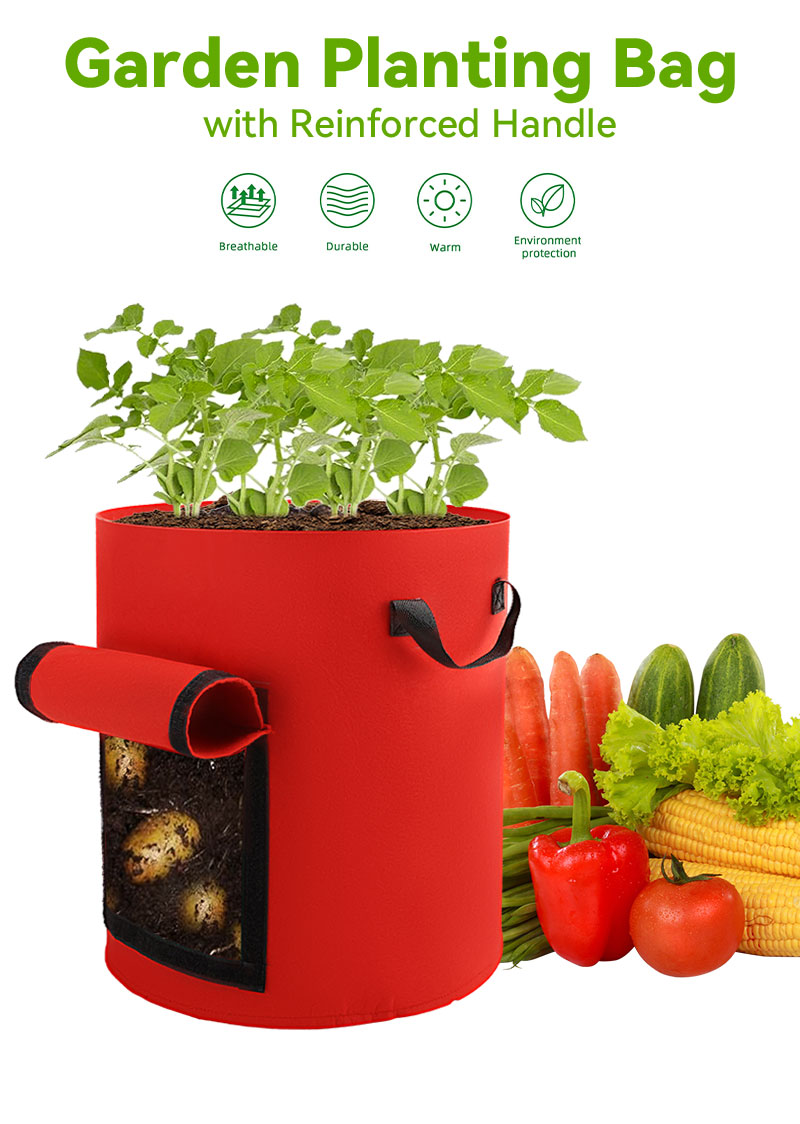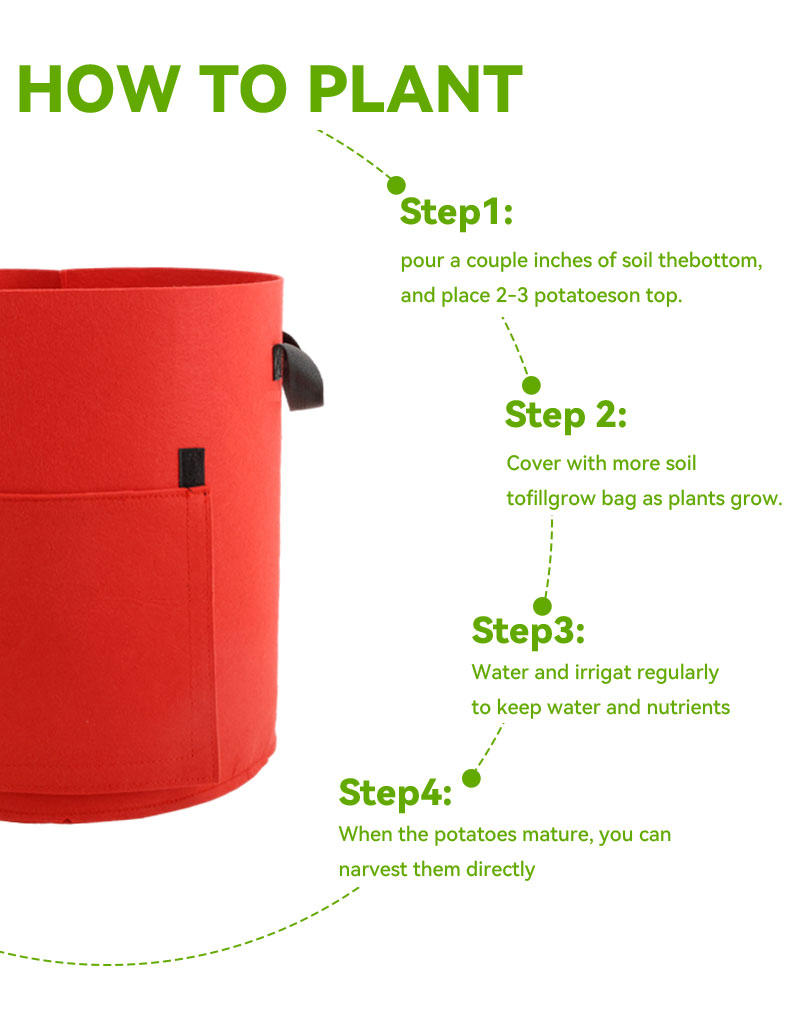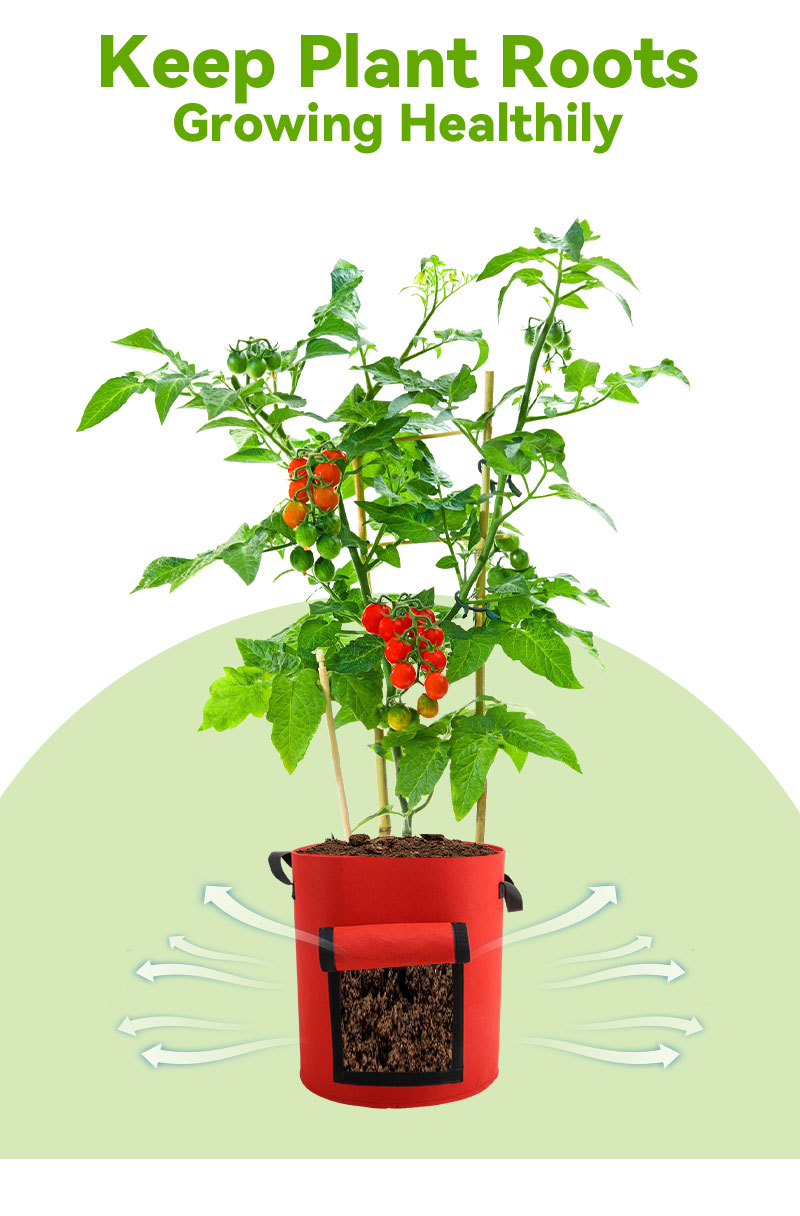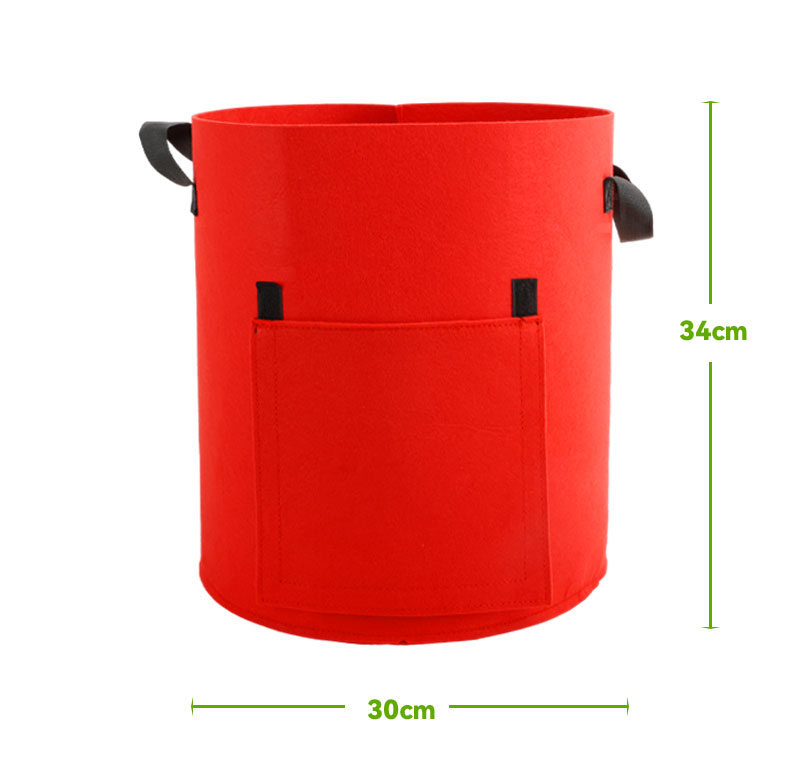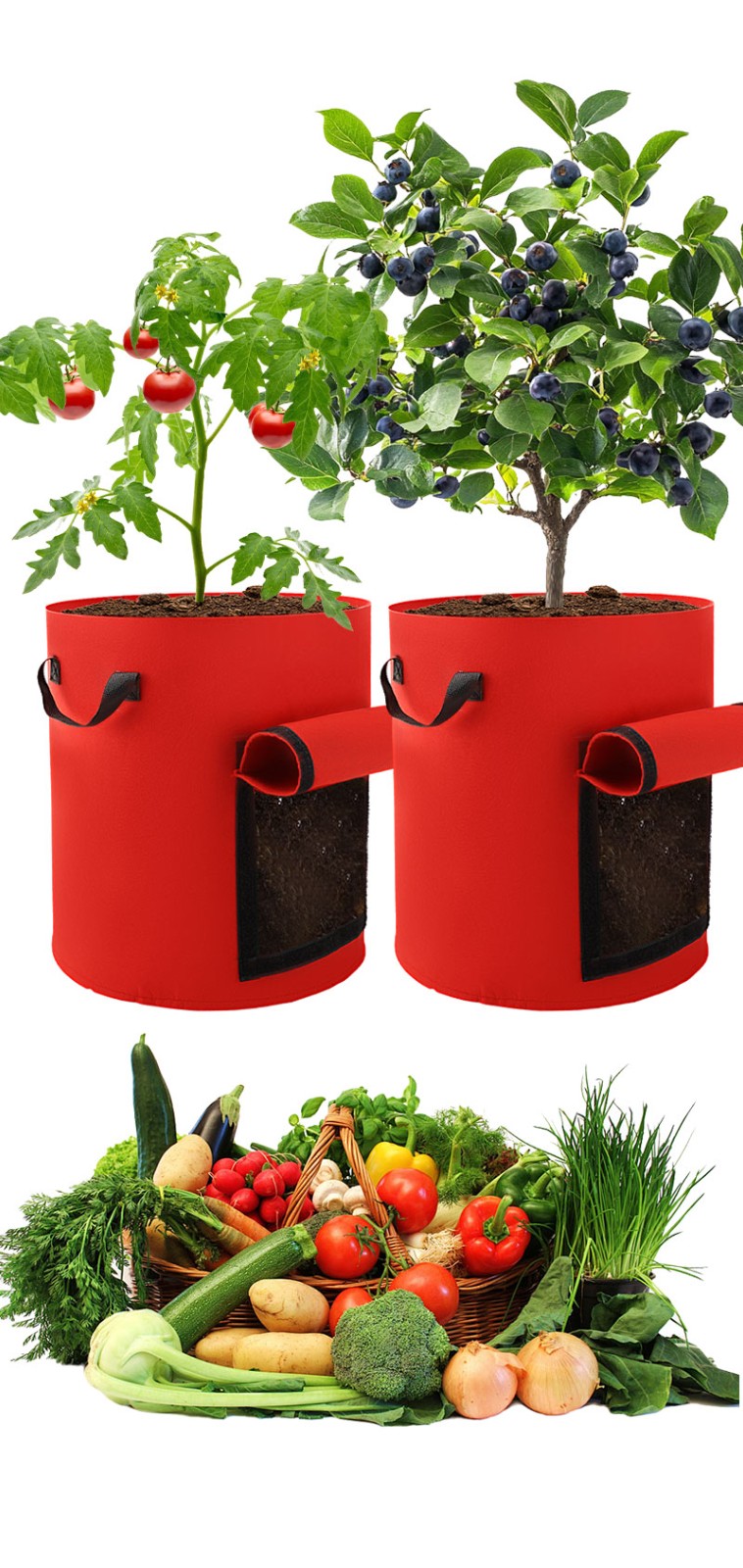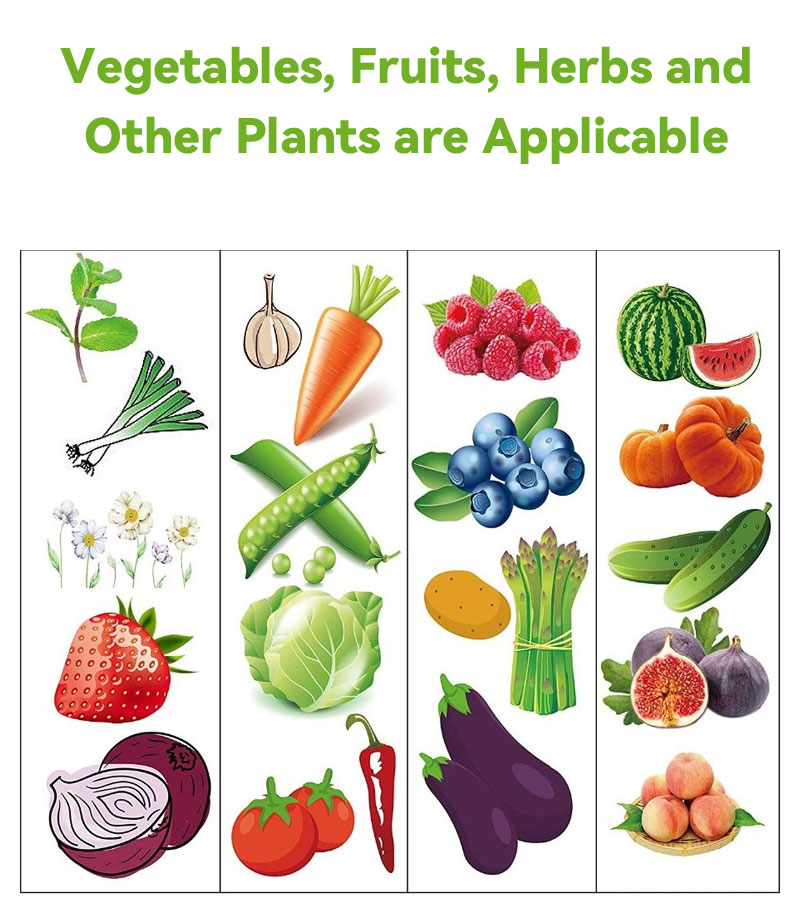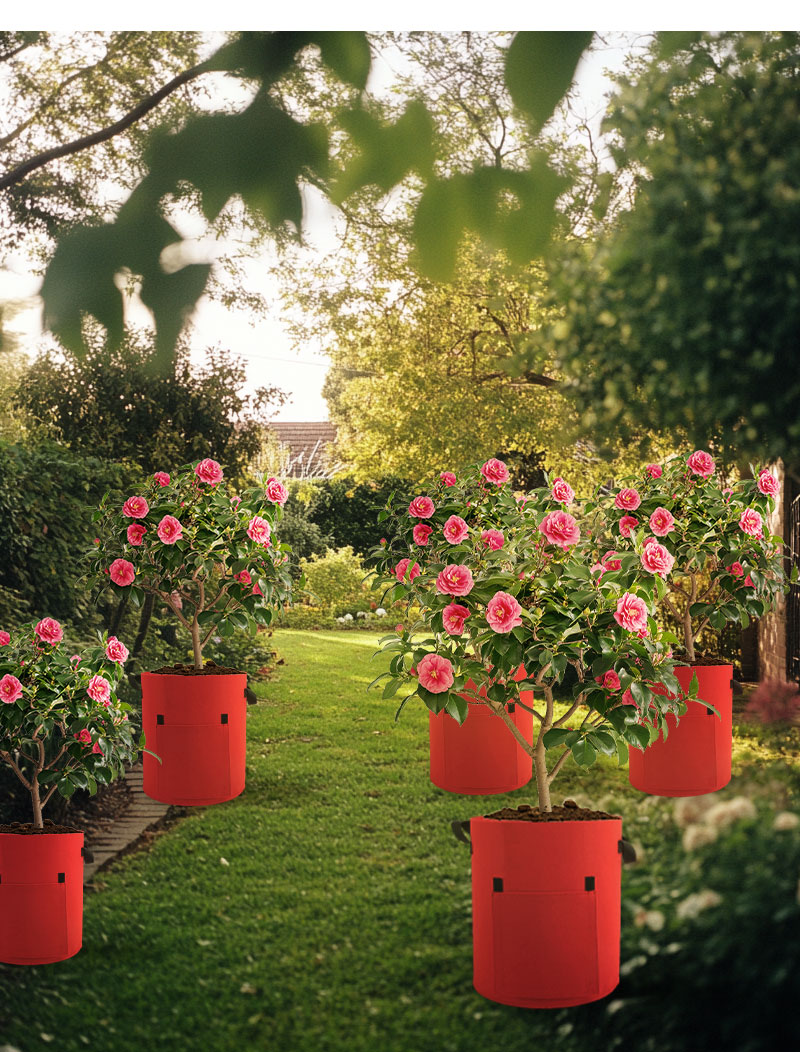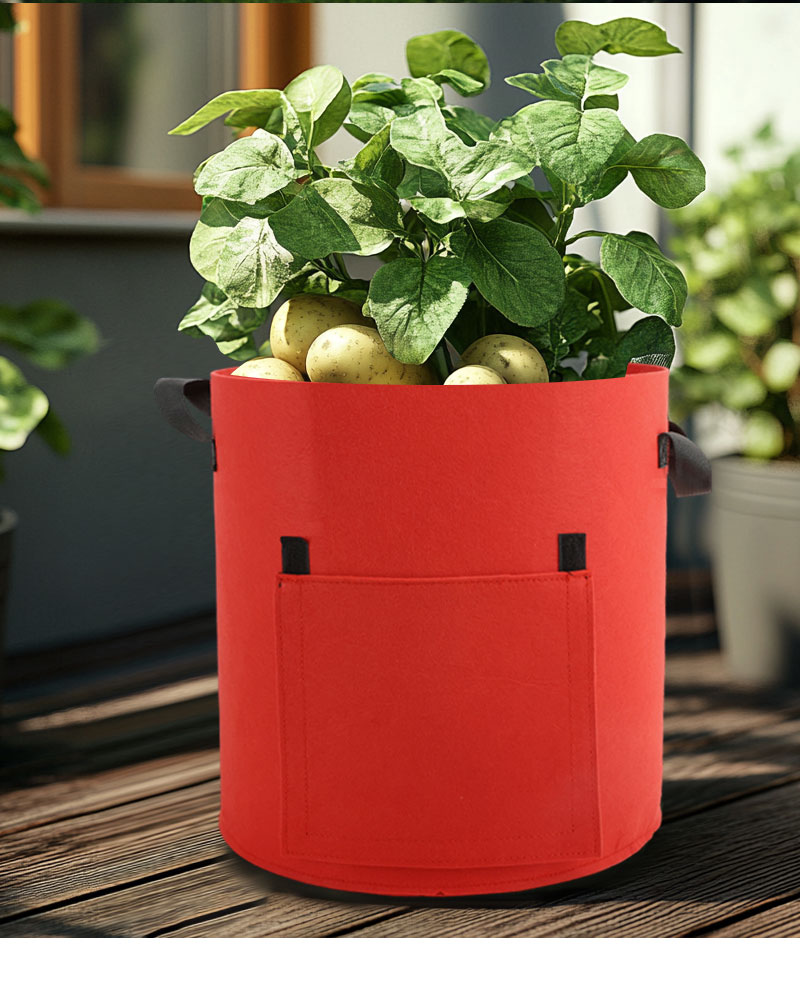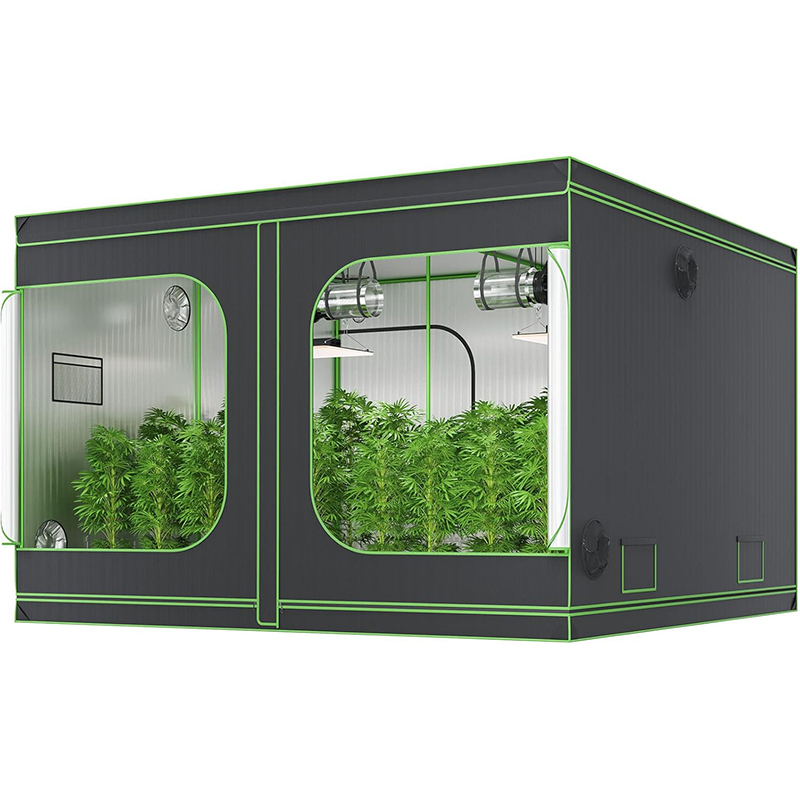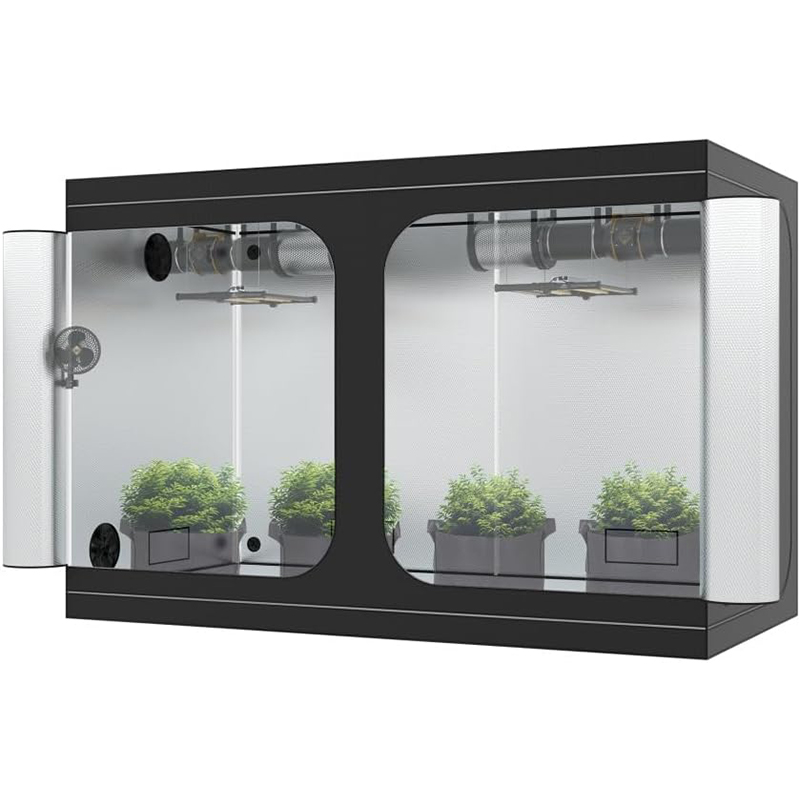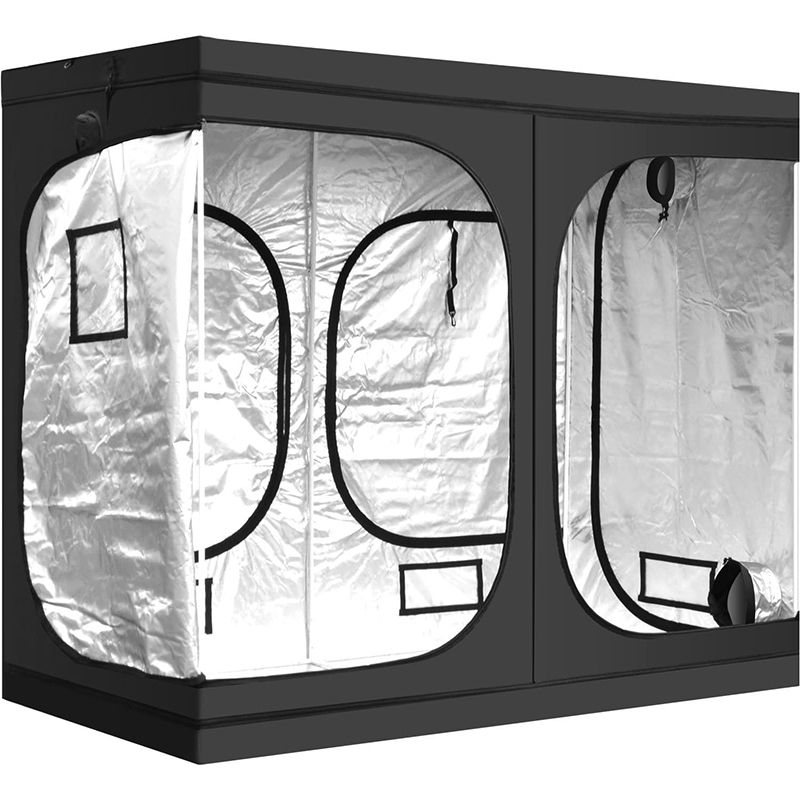Improved Drainage: The permeable fabric ensures excess water drains effectively, preventing waterlogging and root rot.
Temperature Regulation: The fabric material helps regulate soil temperature, keeping roots cooler in hot weather and warmer in cold climates.
Air Pruning: As roots reach the fabric's edge, they encounter air, which naturally prunes them, stimulating the growth of new feeder roots and enhancing nutrient uptake.
Portability: Fabric grow bags are lightweight and portable, making them easy to move around the garden or balcony.
Reusability and Eco-Friendliness: Unlike single-use plastic pots, fabric grow bags are reusable, reducing waste and contributing to sustainable gardening practices.
Air Circulation: The fabric material allows for superior airflow, which is essential for a healthy root system and bigger yields.
Prevents Overgrown Roots: The porous nature of grow bags helps prevent root circling, promoting a healthy and fibrous root system.
Vegetable Gardening: Ideal for growing vegetables like tomatoes, peppers, cucumbers, and leafy greens.
Container Gardening: Perfect for urban dwellers with limited space, allowing cultivation on balconies, patios, and rooftops.
Herbs and Flowers: Suitable for growing herbs, flowers, and ornamental plants.
Indoor Gardening: Can be used for indoor gardening, providing well-draining, breathable containers for houseplants.
Hydroponics and Aquaponics: Can be used in hydroponic and aquaponic systems, offering a substrate for plant roots to anchor and absorb nutrients.
Choose the right size for your plant's root systems to allow them enough room to stretch and spread without becoming overcrowded.
Ensure proper soil and plant selection. Fabric grow bags work well with a variety of soil types, but it's important to choose the right soil mix for your specific plants.
Watering and maintenance tips vary depending on the plant type, but fabric grow bags generally promote better moisture management due to their drainage capabilities.
